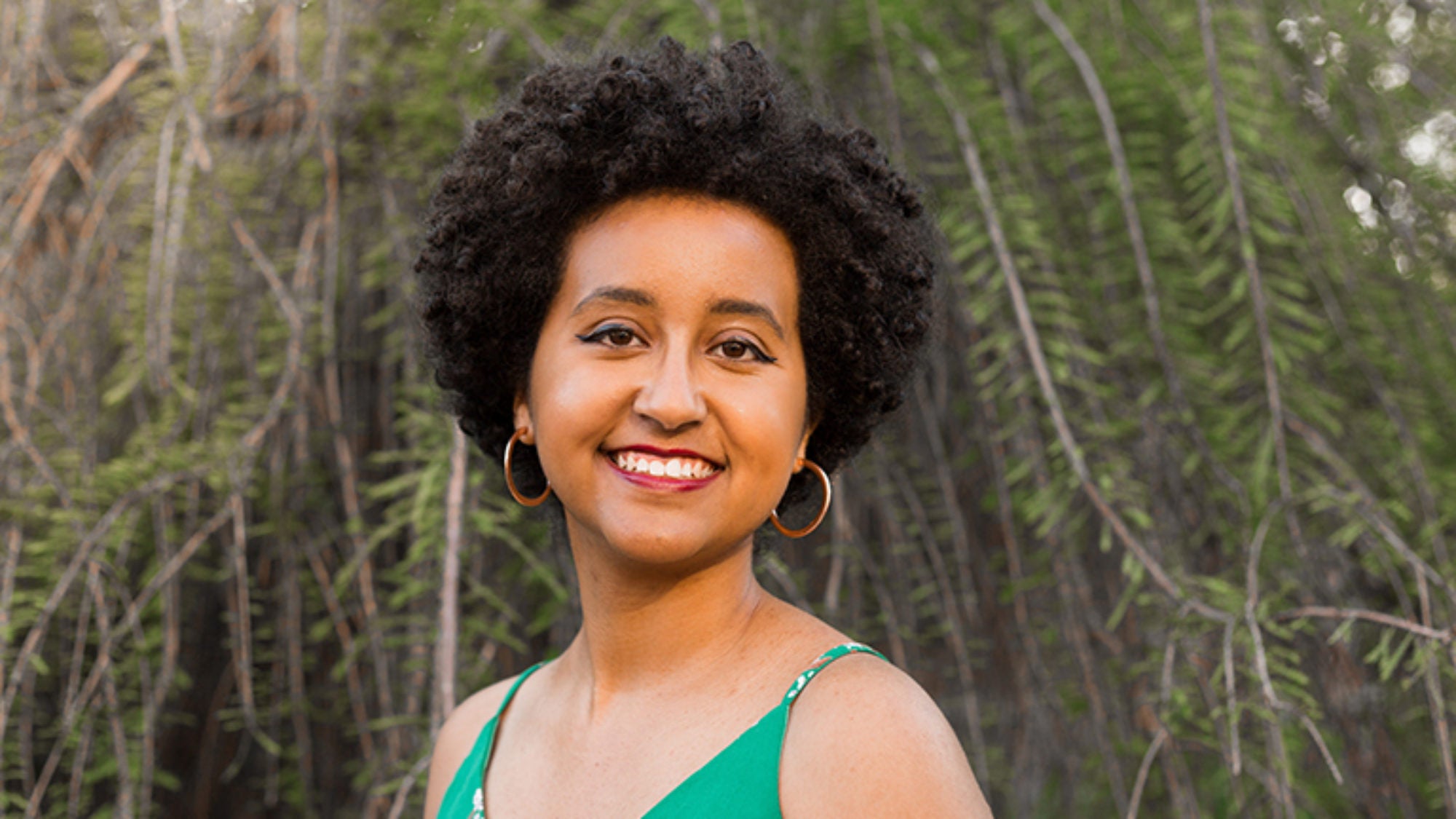Bezi Yohannes (G’20) hopes that one day a wide selection of fantasy and science fiction by people of color, about people of color, will become as mainstream as the Black Panther movie.
People of color wrote, directed and starred in the recent superhero movie, and Yohannes, a first-year English department graduate student, believes the publishing industry has a similar responsibility to promote more authors of color writing black fantasy and science fiction.
“The best representation of a diversity of stories comes from having a diversity of authors writing about their own cultures and stories,” she says of the genre, which the industry calls black speculative fiction. “It shouldn’t just be a few white authors writing stories about black kids or Asian American kids or Latinx kids – it should be the authors of that heritage writing these stories.”
“I want these books to be so prevalent in the American mainstream that they are read at an early age, and no black girl has to wait until she’s 22 to find a fantasy or science fiction book where the protagonists reflect her skin color and her cultural values,” she adds.
Diversity for All
Yohannes says children’s and young adult black speculative fiction is getting more diverse, but that both this category and adult fiction in the genre has a long way to go.
The graduate student says the popularity of such movies as Black Panther and Crazy Rich Asians is one of many indications that should illustrate that the market for black fiction is not just for black people and that Asian fiction is not just for Asians.
“Every audience can and should read well-written stories about diverse characters,” says Yohannes, who hopes to become an editor and has been accepted into the prestigious Denver Publishing Institute this summer.
African Fantasy Worlds
She notes that black authors such as N.K. Jemisin, Nalo Hopkinson and Nnedi Okorafor have written “amazing books” about black women and have created “Afro-centric and African fantasy worlds where they are imagining transformations of society, and which have black characters and black concerns.”
A first-generation American whose parents came to the United States from Ethiopia before she was born, Yohannes has been fascinated by speculative fiction since getting hooked on the Chronicles of Narnia at an early age.
She published a 270-page fantasy novel – Secrets of Meynch (Tate Publishing & Enterprises, 2012) – when she was only 14.
Yohannes graduated summa cum laude from the College of William & Mary in 2018 with a bachelor’s degree in English and a minor in medieval and Renaissance studies.
After studying abroad for six months at the University of Oxford on a scholarship during her undergraduate years, she wrote her senior thesis on the critical intervention of black female fantasy protagonists in Eurocentric genre tropes.
‘Brilliant, Ethical Reader’
In addition to her studies, Yohannes is a teaching assistant for Georgetown’s Community Scholars Program, which provides enhanced educational opportunitiesfor a multicultural cohort of first-generation college students.
“I really love working with community scholars, because it has helped me adjust some of my ideas about pedagogy and how to reach all types of students and make these sort of abstract academic concepts, especially in literature, concrete for them,” she explains.
Yohannes says she admires Angelyn Mitchell, an associate professor of English and African American studies, with whom she is taking a graduate seminar, called Reading Toni Morrison.
“Bezi is a brilliant, careful and ethical reader of literature, and her understanding of critical theories – both their usefulness and their limitations – in reading writers of color is deep,” Mitchell says. “I think it is fitting that Bezi is taking this seminar devoted to Morrison’s works because Morrison also had an incredible career in publishing, a career in which she made major contributions in much the same way Bezi aspires to do.”
